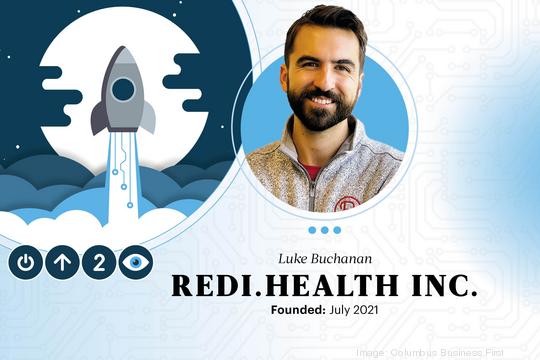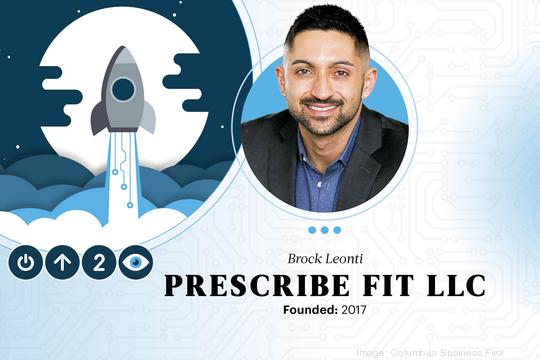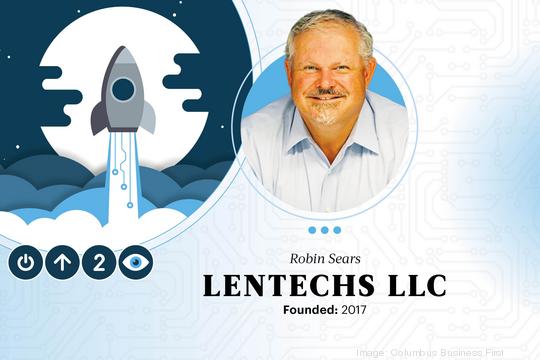Superlatives dominated startup news in Central Ohio the past two years – the state’s largest IPO, biggest single VC round, hugest combined venture rounds.
“Flywheel” is the region’s watchword for 2022, as acquisitions and massive funding rounds inspire a new crop of entrepreneurs to strike out on their own. Several such ventures, started by former employees of tech companies such as CoverMyMeds, Root, Beam Dental and Updox, are in the inaugural list of Columbus Inno’s Startups to Watch for 2022.
Columbus Business First periodically has highlighted startups to watch, and for a few years covered a list from the former trade group VentureOhio. With the launch of Columbus Inno, we join sister publications across the country recognizing startups that perhaps few have heard of yet, but we expect to make news in 2022.
The group ranges from companies incorporated just two months ago to one that reinvented itself after two decades.
Some have sought no publicity; others made a splash with big funding rounds.
There are bootstrapped products and companies in the Drive Capital portfolio, including one that has raised $50 million.
Central Ohio industry strengths in healthcare and financial technology are well-represented, as well as a social enterprise inspired by the immigrant experience.
More broadly, startups of all types this year likely will raise equity specifically to help them compete in a tight labor market, Rev1 Ventures CEO Tom Walker said in a list of the venture development organization’s predictions for the year.
Large corporations and traditional institutional investors fueled a record-breaking 2021 by increasing participation in VC rounds. This creates an opportunity for legacy companies to treat startups as a “vast pool of external R&D,” collaborating to solve industry problems and grow new companies and industries, said Mike McCann, Rev1’s chief business development officer.
With that in mind, check out the list:
BistroUX
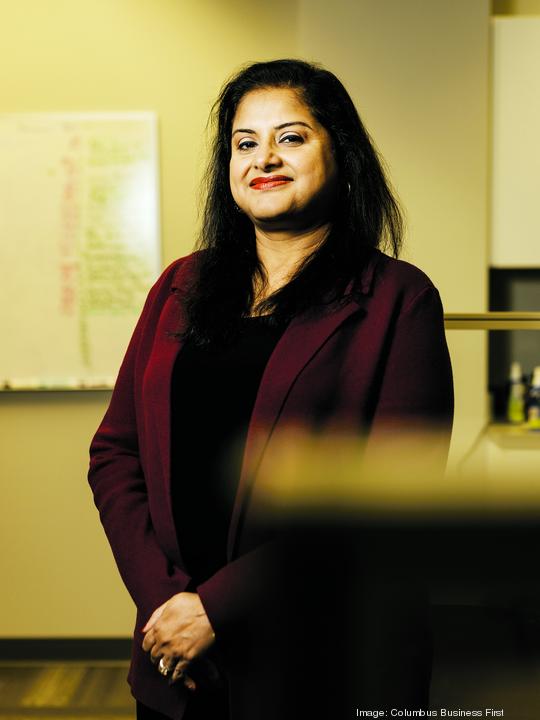
A 23-year-old Dublin IT services business became a startup when it made a huge pandemic-driven turn to go all-in on product, with big expansion plans for the year ahead.
Purba Majumder’s Cybervation Inc. built custom software for healthcare clients, with revenue of $4 million to $5 million yearly.
After a gift card project for Cameron Mitchell Restaurants introduced her to the industry, in 2017 she started building BistroUX, an online restaurant ordering platform. But it didn’t get much traction with small businesses doing fine with dine-in.
That all changed with the stay-home orders in spring 2020. BistroUX has grown to some 150 clients, including Columbus’ El Vaquero chain.
The vast majority are taquerias and mom-and-pop Mexican restaurants, put at ease by the company’s Spanish-speaking customer service representatives who will even walk proprietors through the steps of setting up equipment for competing delivery services.
“They needed so much help, and we were able to provide that,” Majumder said.
Unlike national platforms that take a huge chunk of every order, BistroUX has an up-front $300 activation fee and allows restaurants to choose how to maintain it, including menu upcharges of 25 cents to $1 per item, a flat “convenience fee” on the order, or a monthly payment from the business.
For about $200, the company builds a website for a restaurant that has none.
Clients added as much as $5,000 a month in online carryout orders, increasing profitability by 20% to 30%, she said.
BistroUX has grown through word-of-mouth throughout Ohio and into Indiana and Kentucky. It could quickly and profitably grow to at least 500 clients, with only the expense of customizing for each shop.
In November 2020, Majumder created Cambio Card, a gift card that can be used at any participating merchant. So far, it has 15 restaurants and a salon, with a goal to expand to encourage shopping local.
Cybervation is maintaining some longtime clients but pulled back from custom software to focus on BistroUX and a separate medical staffing subsidiary.
“This is a first time for me, thinking about venture capital,” Majumder said. “This is something I want to explore. It is very scalable.”
Rhove

As housing prices and rents continue to rise, analysts project increased investment in commercial real estate in 2022, especially since the sector is seen as a hedge against inflation.
A Columbus “Robinhood for real estate” is poised to help the tenants become the tycoons.
Rhove, the DBA of Roost Enterprises Inc., is awaiting final Securities and Exchange Commission approval to offer $40 million in shares for as little as $1 apiece, so it’s no longer only millionaires who own a portion of a commercial real estate development in office, retail or housing.
The company was co-founded by CEO Calvin Cooper, a veteran of Columbus venture capital. Drive Capital has invested an undisclosed amount, and Drive co-founder Chris Olsen is on its board.
Another early investor is Kaufman Development founder Brett Kaufman. Rhove tested its concept with an app in which landlords would match tenant savings toward their rent, starting at Kaufman’s Gravity development in Franklinton.
Upon federal approval, the broader app would enable ownership in the properties themselves. Users already have started downloading the Rhove app, creating profiles, participating in forums and depositing funds, Cooper said.
Beyond Columbus, the company has built a portfolio of properties in cities including Cleveland, Indianapolis, Oklahoma City, Denver and Boise.
“We envision a world where the only barrier to real estate ownership is your imagination,” Cooper said via email.
“This is about to be fun.”
Fleri Inc.

Immigrants sent an estimated $589 billion in remittances to their families in low- to middle-income countries in 2021, according to the World Bank, exceeding the amount of foreign aid to any of those countries, save for China.
Yet there is little control of where that money ends up, said Sam Baddoo, founder and CEO of Fleri Inc. It can get diverted on the way, or a cash-strapped recipient might spend money meant for a doctor on rent instead.
Baddoo has felt that pain acutely, when his grandmother in Ghana fell ill and died even though family sent money for care.
So he turned his attention from a career-development social enterprise, where he’d been COO, to found Fleri and help fellow immigrants direct their remittances to specific services for loved ones back home.
“We’re building a company that is by immigrants, for immigrants,” Baddoo said. “We’ve grown very familiar with sending money as if it’s the solution for everything, but it doesn’t really do that.”
The Franklinton social enterprise graduates in January from a TechStars Toronto accelerator for technology focused on the African diaspora. It’s the only U.S.-based company in the virtual class. Beside the seed funding, Baddoo said, the program has provided invaluable access to mentors and networking.
“It became clear to us that they are solving such a fundamental problem in the minds of immigrants,” Sunil Sharma, CEO of Techstars Toronto, said in a release.
Baddoo, who moved to Columbus in 2015, credits backing and guidance from Rev1 Ventures and a network of Central Ohio supporters for keeping the company in the region.
Fleri is Haitian Creole for “flourish.” Eventually, the platform’s services would encompass school tuition, life insurance and home-building.
But first, Fleri is tackling the biggest problem, healthcare.
About four in five immigrants say that is the primary reason for remittances.
Fleri has built a range of custom plans that include premiums to health insurers in the countries, visiting nurses, a pharmaceutical benefit and a phone-based telehealth platform for rural patients without easy access to either physical clinics or internet.
The startup tested the concept with a few hundred U.S. residents purchasing plans for loved ones in Nigeria and Ghana. Nigeria, at about $45 billion in the 2021 World Bank remittance report, is the largest market for remittances in sub-Saharan Africa.
A wait list of about 15,000 U.S. users can start using the platform this month.
Besides expanding in the first markets in Nigeria and Ghana, the service is adding Zambia and Zimbabwe. Plans for 2022 include expanding into Kenya and growing partnerships with existing remittance platforms that hope to improve customer retention by offering Fleri direct services in addition to their core offerings of cash transfers. Haiti is another potential market.
Uleet Inc.
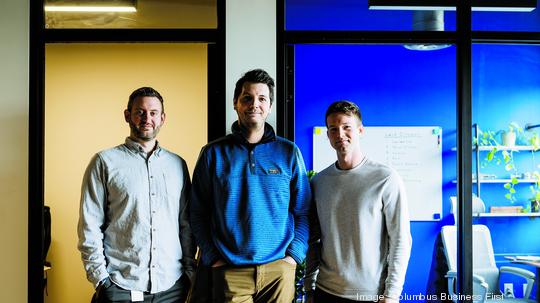
Two months ago, a data scientist working on a national project to transform healthcare joined veterans from CoverMyMeds and Updox to create a digital health insurance plan that rewards healthy behaviors.
Uleet Inc. has applied to become a licensed Ohio health insurer that would offer individual plans on the Affordable Care Act exchange, designed to appeal to entrepreneurs and gig workers.
The plan’s app also would connect to members’ smartwatches or other connected devices and monetarily reward healthy behaviors such as exercise.
“We are health-first in everything we do, really putting the emphasis on chronic disease prevention and building a community around continuous healthy habits,” co-founder and CEO Alex Husted said via email.
For the past two years, Husted has been a data scientist for Health2047, a technology commercialization enterprise created by the American Medical Association. With past software product roles, including at Columbus startup TicketFire, he completed a data science bootcamp in 2019.
The two co-founders have had the experience of helping build a health IT company that grew rapidly and was acquired: COO Heath Rittler built a business analytics program over four years at Dublin’s Updox, promoted to vice president of analytics five months before stepping down in September. His previous analytics roles included Quantum Health Inc. and as regional healthcare economics director for insurance giant UnitedHealth Group.
“Heath is a talented startup executive that understands how data drives outcomes,” former Updox CEO Michael Morgan said via email.
CTO Mike Berkman left CoverMyMeds in September after five years in engineering, three months after being promoted to senior director. He also worked almost nine years at Cisco.
If the name and face seem familiar, yes, Husted is the eldest son of Lt. Gov. Jon Husted.
Empora Title Inc.
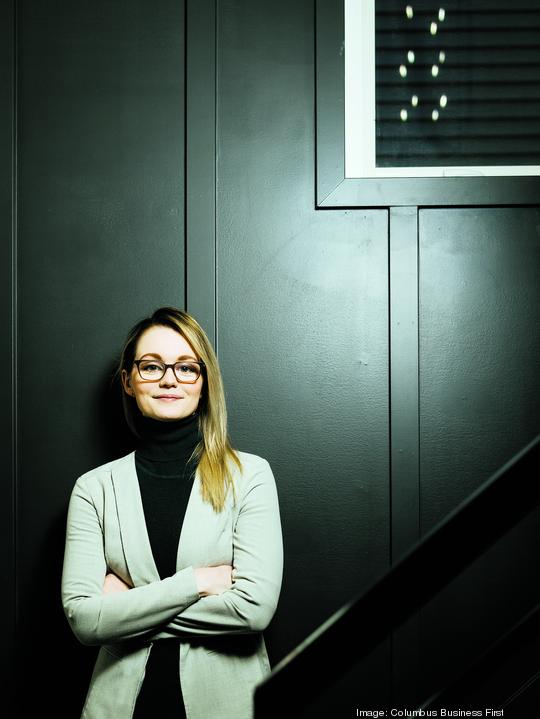
After a year quietly building in stealth mode with a nearly $5 million seed round, Empora Title Inc. burst on the scene in early December with a $20 million Series A, and has big plans in 2022 to shake up the antiquated paper-piling world of title transfers for real estate investors.
CEO Megan Harris left Root Insurance, where she worked for just over a year, a month after its 2020 IPO to build Empora – with financial backing from her former employer and the mentorship of Root co-founder and CEO Alex Timm.
Timothy Overly joined in August as director of engineering, after four years as a senior engineering manager at Root, where he’d led a team that built the in-house claims processing software.
Over five years in product management at Columbus startups, Harris also did freelance market research for VC-backed companies and built an extensive network, attracting regional and national collaborators and mentors for Empora, even from the title agencies she’s disrupting.
Investors include San Francisco-area VC firms and Opendoor Technologies Inc.
That's not all. See the rest of the startups we're watching in this slideshow:



